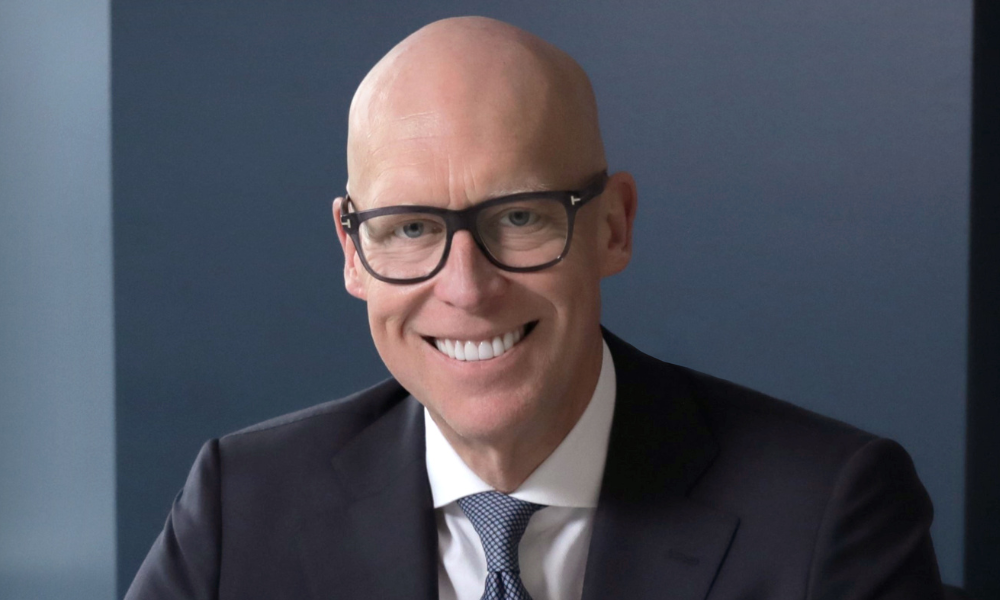President & CEO outlines initiatives, acquisitions, and priorities for firm. Explains why he thinks Canadian investors will be resilient despite rough water ahead

Franklin Templeton Canada is in a state of constant evolution. Duane Green, President & CEO of Franklin Templeton Canada, explained that his firm has met the rapidly changing demands of Canadian investors and advisors in an uncertain market by forcing themselves to evolve. Through acquisitions, refinement, and proactive communication the firm is transforming itself with the goal of delivering better service and outcomes to advisors and investors.
That process isn’t easy. Green notes that as Franklin Templeton has expanded its operations and offerings globally, the firm’s Canadian arm has had to be selective and targeted in rolling out funds that they believe can have the greatest impact. Rather than forcing advisors to drink out of a fire hose with constant product launches and endless variations of the same strategy, he has focused on a core group of strategies filling an acute need.
“I think we’d all agree that going into 2020, every manager in Canada had way too much product proliferation,” Green says. “While it’s hard to close things once you open them we had to really look and objectively ask if we needed as many funds as we did…Now going forward we can be really selective in terms of the capabilities we bring into the Canadian market.”
Green’s emphasis now in the firm’s marketing and outreach to advisors is in capabilities rather than products. For example, a partner firm might come to Franklin asking for a specific strategy. Green says they can build that strategy into a fund, hand it to their client, and leave it at that — without launching a retail version. That gives Franklin’s clients the ability to differentiate their offerings and means Franklin can grow their AUM without clogging the market with a slew of new products every other week.
“This is the ultimate definition of partnership in our business,” Green says. “I think the term partnership is bandied about pretty liberally, but this is a situation where you see a true win-win.”
Franklin can take that marketing approach in large part because their capabilities have expanded in recent years. That process began with the acquisition of Legg Mason in July of 2020, which came with a huge stable of specialist investment managers capable of building a far wider range of strategies for Canadian wealth management firms.
Franklin followed that up with the acquisition of Lexington, a private equity manager, and Alcentra, a private credit manager that is part of Benefit Street Partners. Those two acquisitions have added to Franklin’s global alternatives platform, which now manages over $300 billion. That scale is reflected in Franklin’s thought leadership, and the deep knowledge their specialized investment teams can offer on specific subjects and areas advisors may need to understand. While that’s only a fraction of Franklin Templeton’s $1.4 trillion USD in assets under management, Green notes that an alts platform of their scale is a “force to be reckoned with.”
What all this amounts to, Green says, is that Franklin Templeton Canada can now be more creative in their collaborations with Canadian advisors, at a time when Canadian investors need creativity.
Green sees how tough markets have been for investors and advisors to navigate. Turbulence on markets has been mirrored by growing instability in global security and geopolitics. Canadian investors are worried as war, inflation, and recession fears knock noisily on their doors. In the face of those challenges, Green believes that Canadians will show resilience because they tend to be well advised. He sees natural market cycles at work in this turbulence, and notes that good advisors will be delivering the same context to their worried clients. His task, now, is to demonstrate to advisors that the capabilities Franklin Templeton has built can help them in these turbulent times.
“We’re focused on re-engaging with the advisory community, especially with those advisors that maybe have known us from several years ago when we were really just Templeton and our business was some international equity, some domestic equity and domestic fixed income,” Green says. “Those are still good capabilities, but there’s a lot more to who we are now in the Canadian market. As we reengage with advisors we’re not asking them to add another partner for one or two strategies, but to show them our capabilities and give advisors the ability to really build robust portfolios by picking from the best of the best of what we have on offer.”



